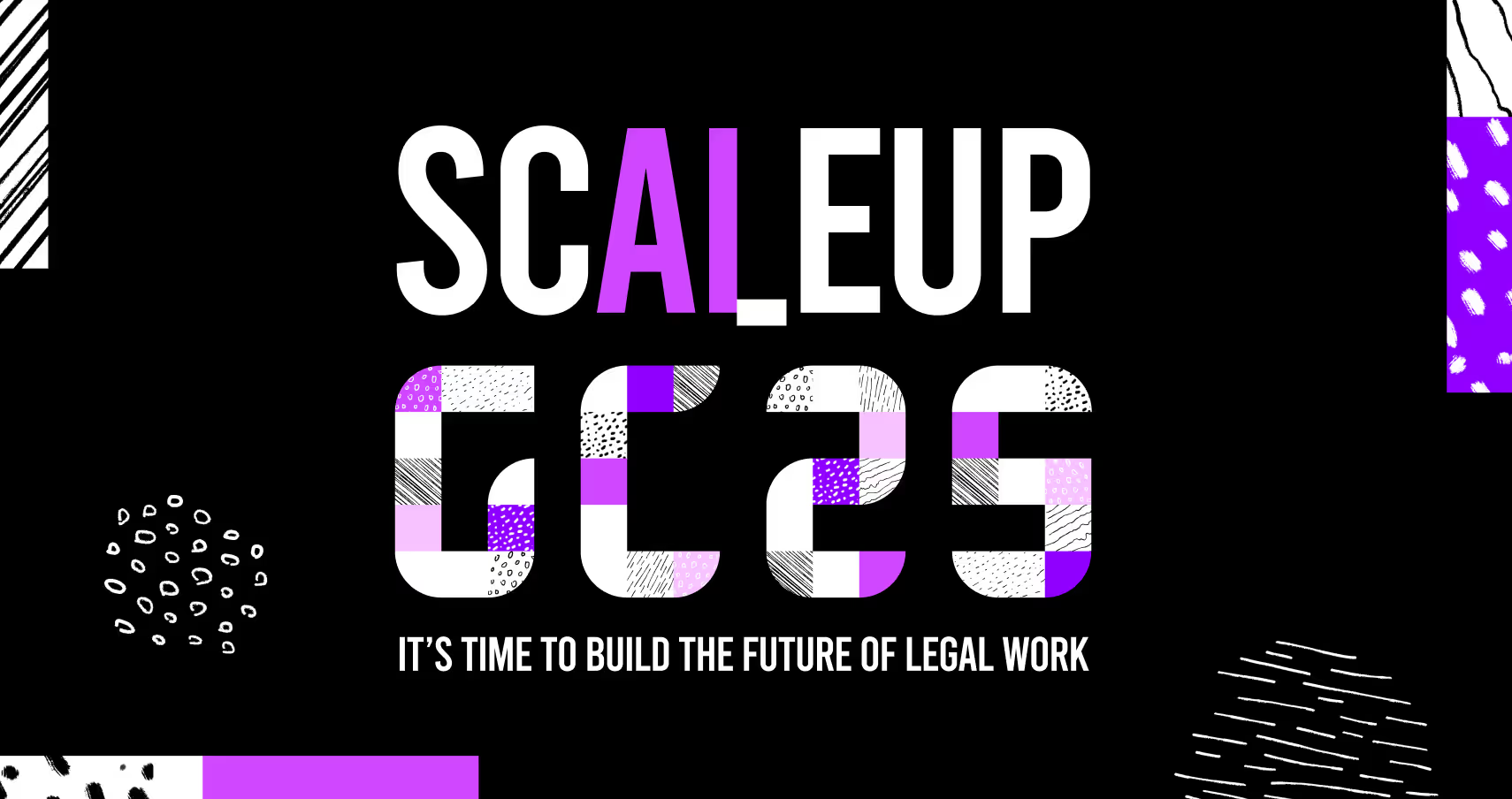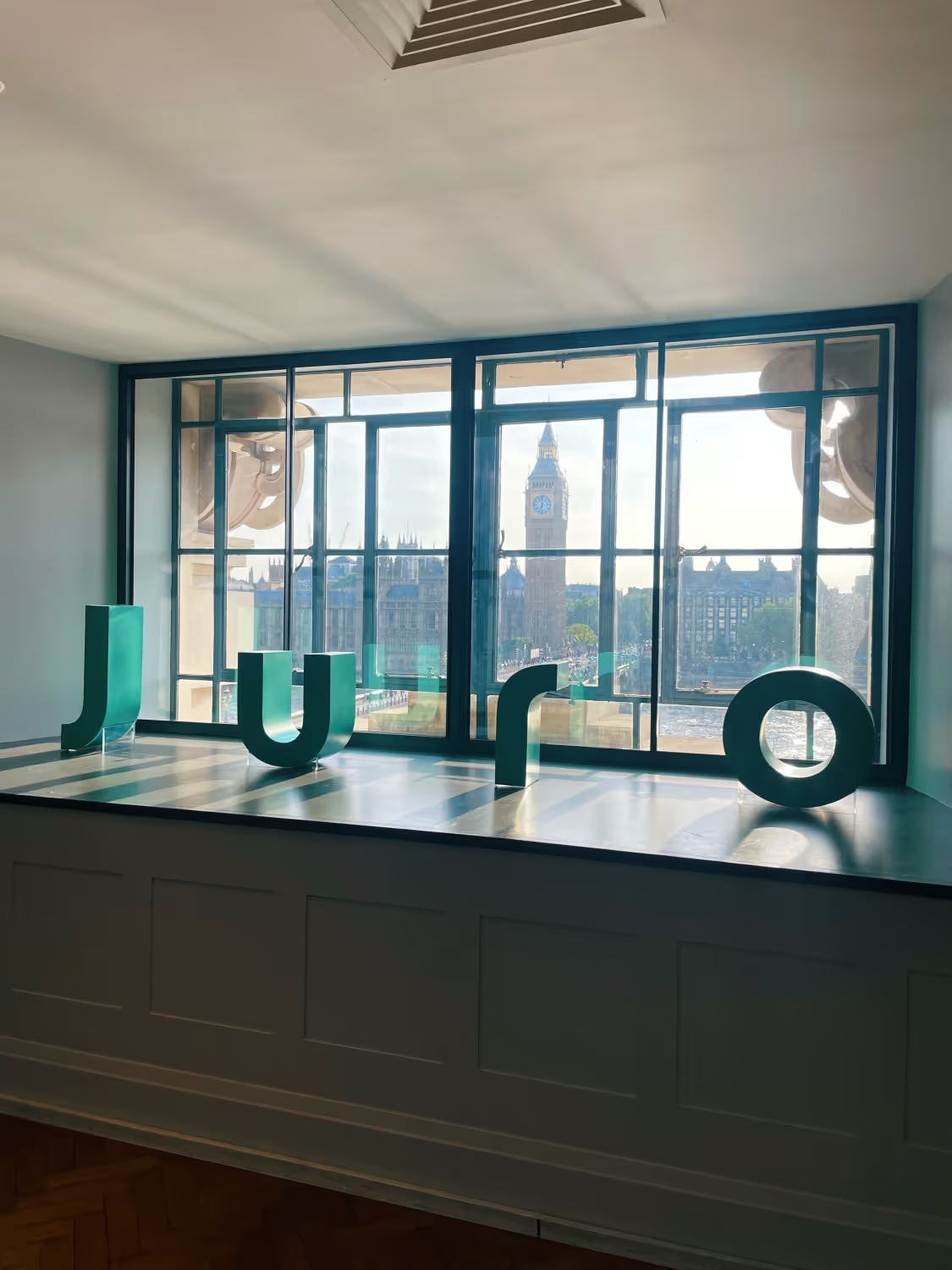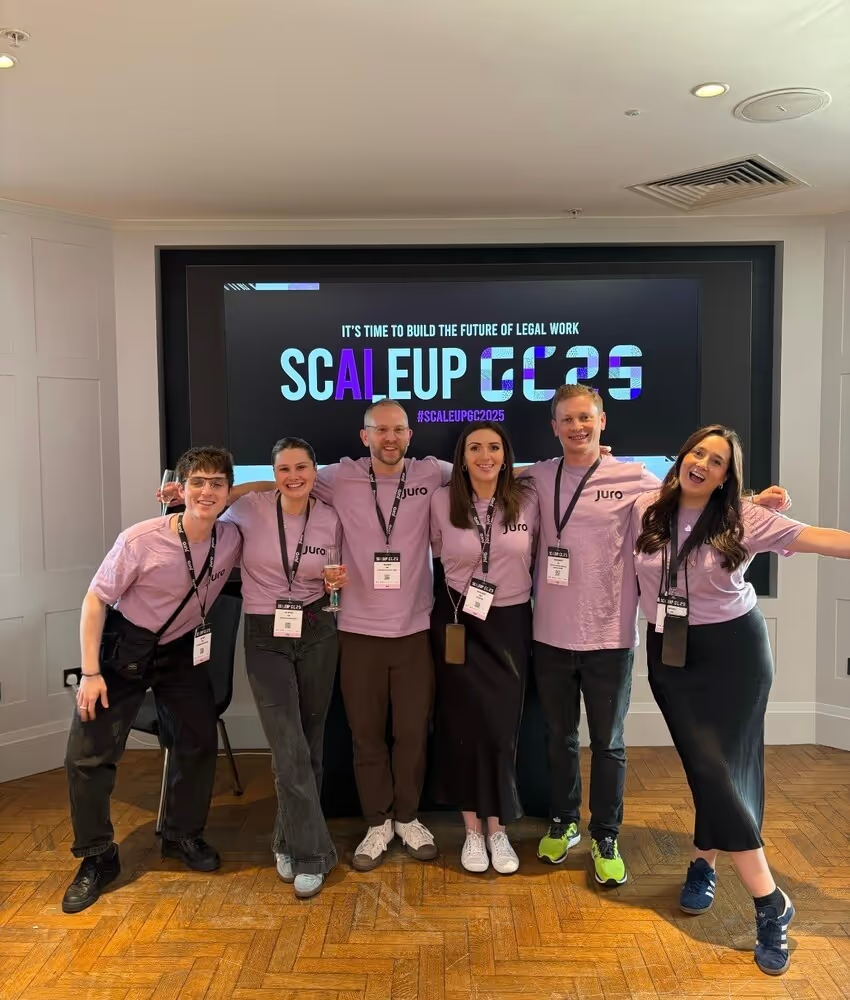Solutions
Customer Support
Resources


So to see more than 400 of you at once smiling back at me as I had the immense privilege of kicking off Scaleup GC 2025 was honestly a bit surreal, quite sobering and very powerful.
The Juro community started during the pandemic as a way to make sure in-house lawyers stayed connected and supported, and in those early days we did it literally 3 or 4 of you at a time, always virtually. As CEO & co-founder I get to play a walk-on part in lots of our teams’ successes at Juro, but seeing what Scaleup GC has become, from those beginnings, is a really rewarding one.
Before I get into our key takeaways, check out the pictures from the day by clicking the image below:

So what were the takeaways? I learned so much from our customers, speakers, sponsors and new friends but three key lessons stood out:
Alfred Biehler, former Head of Innovation at Google, closed out the day and said something that really stuck with me. He emphasized that the production of deliverables is no longer the primary value in legal work.
What’s now more important is the process - how you get there, why you choose that destination, and your judgement as to what’s right. Are you asking the right questions? Are you engaging in deep, thoughtful analysis? Can you communicate effectively with the business? These are the emerging markers of legal value.
If legal ‘product’ - contracts, advisory notes, reports and so on - can be produced to a comparable degree by AI, then the knowledge of what makes that process robust, and its product trustworthy, is much more valuable. Perhaps irreplaceable.

Josephine Hanschke, Michael Haynes, and I shared with our audience the latest new development in our contract review capabilities. Juro users can now initiate AI contract review and have AI agents redline documents directly from Slack or Teams, and see those surgical redlines in Word.
We’ve talked about agents all year, but to show it to the world and to see the live reaction (and the rush to talk to our commercial team) in real time was great to see. It’s a nice outcome for Juro, but more importantly it validates that this eternal problem for time-crunched small legal teams is still as pressing as ever, and a flexible solution that lives where your business colleagues live could really move the needle in terms of how lawyers spend their days.
Some of what we showed is quite radical — like an NDA being marked up by an agent instead of a lawyer. Some teams were amazed; I imagine others might think it’s moving too fast.
This signals a real shift in sentiment. And the idea that we might be on the precipice of unlocking a huge amount of productivity for legal teams and the teams they enable? Those kinds of moments are why I founded Juro in the first place.
But if we flip that script; yes, there’s enthusiasm for AI solutions amongst the vanguard who’ve been experimenting for months, if not years. But if we zoom out to look at business as a whole, then legal tech adoption is still relatively low outside the core innovation circles.
It was refreshing to see attendees join us from more traditional legal teams, who appeared frustrated with the status quo and eager for change. For them, it’s still early innings when it comes to the agentic AI wave. People are still confused. Raj Mahapatra, Annick O'Brien, and Nicholas Butts did a superb job of explaining the current AI regulatory landscape, but it’s just so big a topic and it’s moving so fast. Many questions remain unanswered.

As I closed out the day, I shared my feeling with the room that while the pace of change has perhaps never been faster, I’ve equally never been more convinced that the judgement of commercially savvy, tech-minded, level-headed lawyers is the main thing - perhaps the only thing - that I’m certain will still be crucial five years from now.
There might be fewer lawyers. Or the lawyers there are might be fundamentally different, having skipped the initial 5 years of grinding through low-value work. These ideas are scary. But to be watching a profession reimagine itself in real time is honestly thrilling.

Thanks to everyone who made Scaleup GC 2025 such a success, and I look forward to seeing you at our next event.

Richard Mabey is the CEO and co-founder of Juro, the intelligent contract automation platform. Under his leadership, Juro has scaled rapidly, backed by $38 million in venture funding from prominent investors including Eight Roads, USV, Point Nine Capital and Seedcamp, and the founders of companies like Indeed, Gumtree and Wise.
Richard trained and qualified at Freshfields Bruckhaus Deringer, working as an M&A associate in London and New York. He gained an MBA from INSEAD, and then spent time at LegalZoom, learning to build legal tech products.
Frustrated by the manual legal processes that slow down businesses, Richard co-founded Juro in 2016, with a mission to help the world agree contracts faster. Beyond Juro, he hosts the "Brief Encounters" podcast, makes angel investments, and supports other ambitious ventures from the boardroom. Richard is a Fellow of the RSA, an adviser to The Entrepreneurs Network and sits as a Non-executive Director of Bright Blue.